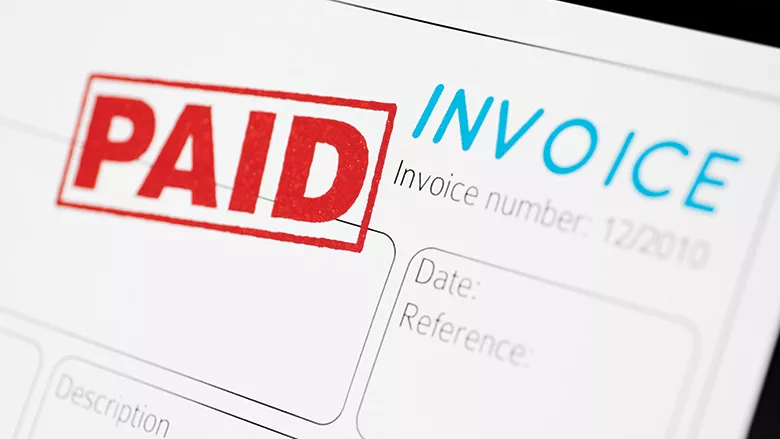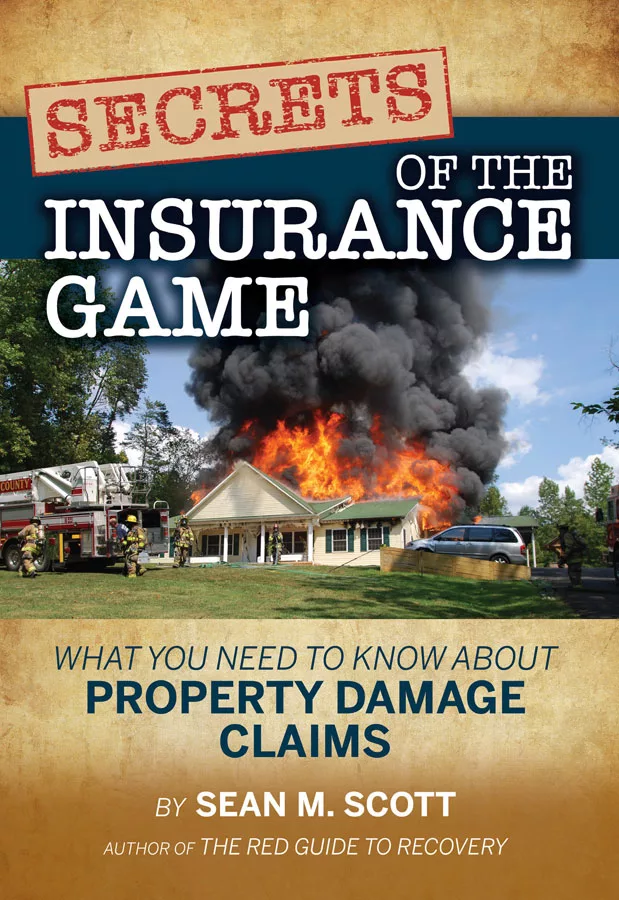Cross-Examination: Who Is in Charge of Setting Restoration Prices?
‘We Don’t Pay for That.’ Why DON’T You Pay for That?

Photo credit: Getty Images
“Who is in charge of setting restoration prices?” should not be a trick question, but far too many are confused about the correct answer. The simple reason is because the insurance industry tries to take control of the restoration industry. Part of the reason they do that is because many restorers allow them to do it. The more control is relinquished to insurers, the more they will take and the more that policyholders will suffer. Carriers are required to justify their claims decisions, but many make sweeping denials that are unsupported by their policies or the law.
Let’s stay focused on the policyholder first and foremost.
When restorers allow insurers to make major changes to prices and scopes of work, it creates a serious risk that policyholders will end up with something less than what restorers believe in their professional judgment are the best methods to return properties to their pre-loss condition.
Tragically, I have seen far too many restoration companies struggle to survive or perish altogether because they are lured into various systems that rob them of the lifeblood they need to perform high-quality work and generate profit to remain viable. Increased volume may cause their top lines to swell, but what is the point if the bottom line is red? Zero percent of a big number is still zero.
To provide consistent, high-quality service, restorers need licenses, certifications, insurance, equipment, software, training, facilities, vehicles, marketing, accounting departments, payroll, employee benefits, and on and on. It is very expensive to run a restoration business, and costs, particularly for labor and insurance, have risen considerably, yet many continue to default to the figure of 10% for overhead. It is a fake number. Insurers are not allowed to use fake numbers.
My files are loaded with correspondence from adjusters who refuse to pay for things like air scrubbers, project supervision, overhead and profit, and so on. These adjusters are encouraging unsafe, unsupervised, unprofitable projects. This is not sustainable. It forces restorers to cut corners. That will lead to unfavorable claims experiences that will motivate the policyholders to find new insurance companies at renewal time.
Second, focus on the insurance policy and the law.
The contract of insurance and the state laws and regulations control what insurers can do. They are prohibited from making arbitrary claims handling decisions. They cannot invent exclusions that do not appear in the policy. One major insurance company has bullying adjusters that say their company “does not cover overhead and profit.” One of the Ten Commandments of insurance claims handling law is “Thou shalt not misrepresent coverage,” but some of them are doing it routinely. If they say “we don’t pay for that,” they need an objectively reasonable justification, or they face liability for insurance bad faith.
Ask them what part of the policy says they do not have to pay for that. They probably will not be able to, and they will have to fall back on what they think is customary. What data do they have to support that? If you can counter with evidence that what you want is common, i.e., not rare, then they should give it to you. They are legally required to act reasonably, and they have to give at least as much consideration to the rights of the policyholder as they do their own. If they fail to do so, they may be liable for bad faith and in most states, restorers can obtain assignments of the bad faith claims and sue the carriers directly.
“Change your labor rate to X because your rate is not in line with what Xactimate dictates.” I’ve seen that many times. Xactimate does not “dictate” prices. Xactimate prices are not intended to be global prices, according to Mike Fulton, the president of Verisk Property Estimating Solutions (formerly known as Xactware), who addressed this exact topic in a Restoration Industry Association (RIA) Virtual Conference on April 16, 2020, which can be viewed by members of the RIA on the association’s Member Only AGA Resources page (www.RestorationIndustry.org).
Fulton explained that the accurate or the “right price” for a restoration project is determined by a willing buyer and a willing seller, and depends on the individual needs of the project, the customer, the contractor and other factors. This is often referred to as “fair market value.” Fulton said that when insurance representatives attempt to use Xactimate prices as global prices, it reveals, “Clearly some individuals who are really choosing to abdicate their role in that discussion…someone who really doesn’t understand the insurance policy contract under which they are bound.”
Xactware made clear that it does not “set” prices but many adjusters do not understand that. Insurers need to pay fair market value, according to what the restoration industry chooses to charge –– not according to what the insurance industry tells restorers to charge. If you forget everything else you read in this entire article, please just remember this one point: The insurance industry is legally required to adapt to what the restoration industry charges. It is not the other way around!
If you forget everything else you read in this entire article, please just remember this one point: The insurance industry is legally required to adapt to what the restoration industry charges. It is not the other way around!
Google “Xactware License Agreement” and it will take you to the agreement. Send the link to the adjuster with a request to read section 11.3. In that section, the Xactimate License Agreement prohibits users, including insurers, from prohibiting deviations from Xactimate prices. It explains that Xactware does not warrant the accuracy of its pricing and that the user is responsible to ensure that estimates include pricing that is consistent with actual costs.
So what does the insurance contract require the insurer to pay? It would behoove restorers to become very familiar with the insurance policies at play in their transactions. Never advise a policyholder about coverage or “represent” the policyholder in a claim settlement unless you have been trained in coverage interpretation and you have been engaged to interpret the policy and you have the required license. My recommendation to review the policy is not for you to act as a public adjuster, but for you to understand the parameters of what the insurance company is required to pay, so you can negotiate on your own behalf. The easiest way to get the policy is by submitting to the insurer an Insurance Information Authorization and Release executed by the policyholder. It directs the insurer to send you a copy of the policy. If the insurer refuses, that is an unreasonable claim handling practice, which could be evidence of insurance bad faith, in my view.
Some policies use adjectives to describe what the insurer is required to pay, e.g., reasonable, usual, actual, necessary and the like. But others simply say “costs.” Courts often interpret policies to require carriers to pay “customary” charges. Merriam-Webster defines “customary” as something “commonly practiced, used or observed.” But what does “commonly” mean? Merriam-Webster defines “common” as “occurring or appearing frequently: Not rare” (emphasis added). Common does not mean “done all the time,” or even most of the time. Nothing in the industry is done “all the time.”
“My guy will do it for 35% less.” You are not obligated to match someone else’s prices. In fact, you are not required to do anything requested by any third party, including the carrier, in the absence of a contractual obligation. (See the RIA’s Third Party Consultant Position Statements.)
Even if the lowest price in town is common, it is, by definition, not the only common price. More than one price can be –– and probably is –– common. If you are charging prices that are frequently charged in your market for your level of service, you have a strong position that your prices are customary and the carrier should pay them. If not, the carrier may be in breach of the insurance contract and could be liable for bad faith. Those who hold Assignments of Insurance Rights are in the first party position in most states, and may have the right to pursue legal claims directly against the carrier in those situations.
It behooves restorers to cooperate with insurers and their partners, but restorers can charge whatever they want so long as they are not committing fraud. The carrier, on the other hand, is only required to pay a “common” price, or whatever adjective is specified in the policy. The customer is responsible for the difference.
If you charge more than the prices in standardized price lists, be prepared to explain why. That may be easier than you think, particularly with material prices, which are usually very easy to verify. Fight back against adjusters who automatically presume that just because a standardized price list is published monthly, every number in it has been updated every month. The best-kept secret is that the industry trend reports in XactAnalysis show price history. Prices need to keep pace with inflation, supply chain issues, demand and other relevant factors.
In most states, unfair and unreasonable claims handling practices can subject the carrier to liability for insurance bad faith. Unfortunately, most policyholders lack the resources to pursue claims for bad faith, but some restorers are up to the challenge. In some states, this can be accomplished with an Assignment of Insurance Rights. Check out the RIA's 50-State Reference Guide on Assignments of Benefits and Insurance Bad Faith, and then talk to a local lawyer about your options. RIA members can access the guide from the Advocacy section of the RIA website.
And for Pete’s sake, call Verisk and report your prices!
Yours in the struggle,

Disclaimer: This article is intended for general information purposes and is not intended to be legal advice. Legal issues should be presented to qualified counsel licensed to practice law in the jurisdiction where the events occurred.
Looking for a reprint of this article?
From high-res PDFs to custom plaques, order your copy today!









